
While regular trips to the grocery store are kind of a must if you like having fresh produce around, pantry cooking comes in clutch when you need to whip up a meal, stat.
“Perhaps you didn’t have time to get to the store or you worked out late,” says nutritionist Keri Gans, RD, author of The Small Change Diet. “No matter what the scenario, it is always good to know you have something in the house as a back-up.”
Of course, that means you need to stock up on the proper pantry staples. I mean, your healthy dinner options will be pretty sparse if you only have chips in the cupboard…
“Having healthy staples on hand makes it much easier to prepare a balanced, nourishing meal without having to go anywhere,” says nutritionist Jessica Cording, RD, author of The Little Book of Game-Changers, who talks to her clients about pantry cooking staples all the time.“You’re able to roll with the punches better.”
Plus, throwing together a meal with what you have laying around is quicker than ordering takeout. (More time for activities!) It’s also a good way to save some cheddar—especially if you stock up when pantry staples are on sale, adds Sonya Angelone, RD, spokeswoman for the Academy of Nutrition and Dietetics.
While having a stocked pantry (and fridge and freezer) sounds like a no-brainer, knowing what to load up on is a different story. Make sure the following dry goods, canned foods, refrigerated staples, frozen must-haves, and condiments and spices are on your list for your next grocery haul.
Dry Goods
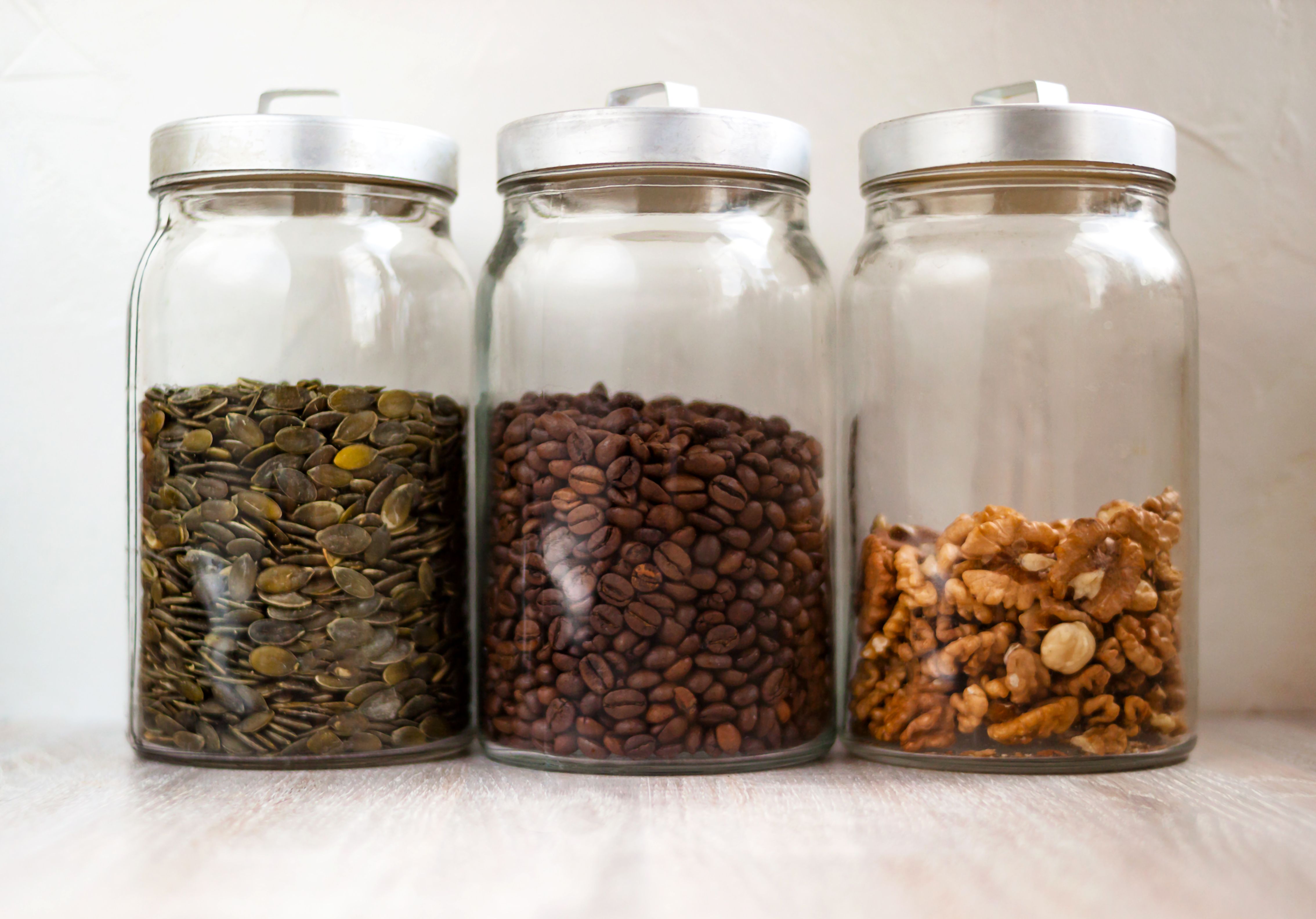 Евгения МатвеецGetty Images
Евгения МатвеецGetty Images
Dry goods “definitely come in handy for last-minute meal ideas,” Gans says. “They make great bases or side dishes to accompany veggies and a protein, such as chicken, fish, or tofu.”
For everything from last-minute lunches to baking, the experts swear by these nutritious picks:
- Lentils
- Dried grains (brown rice, whole-wheat pasta, quinoa)
- Nut butters
- Vegetable, chicken, or beef broths
- Nuts
- Flours
- Dried cereals, like oatmeal
Canned Goods
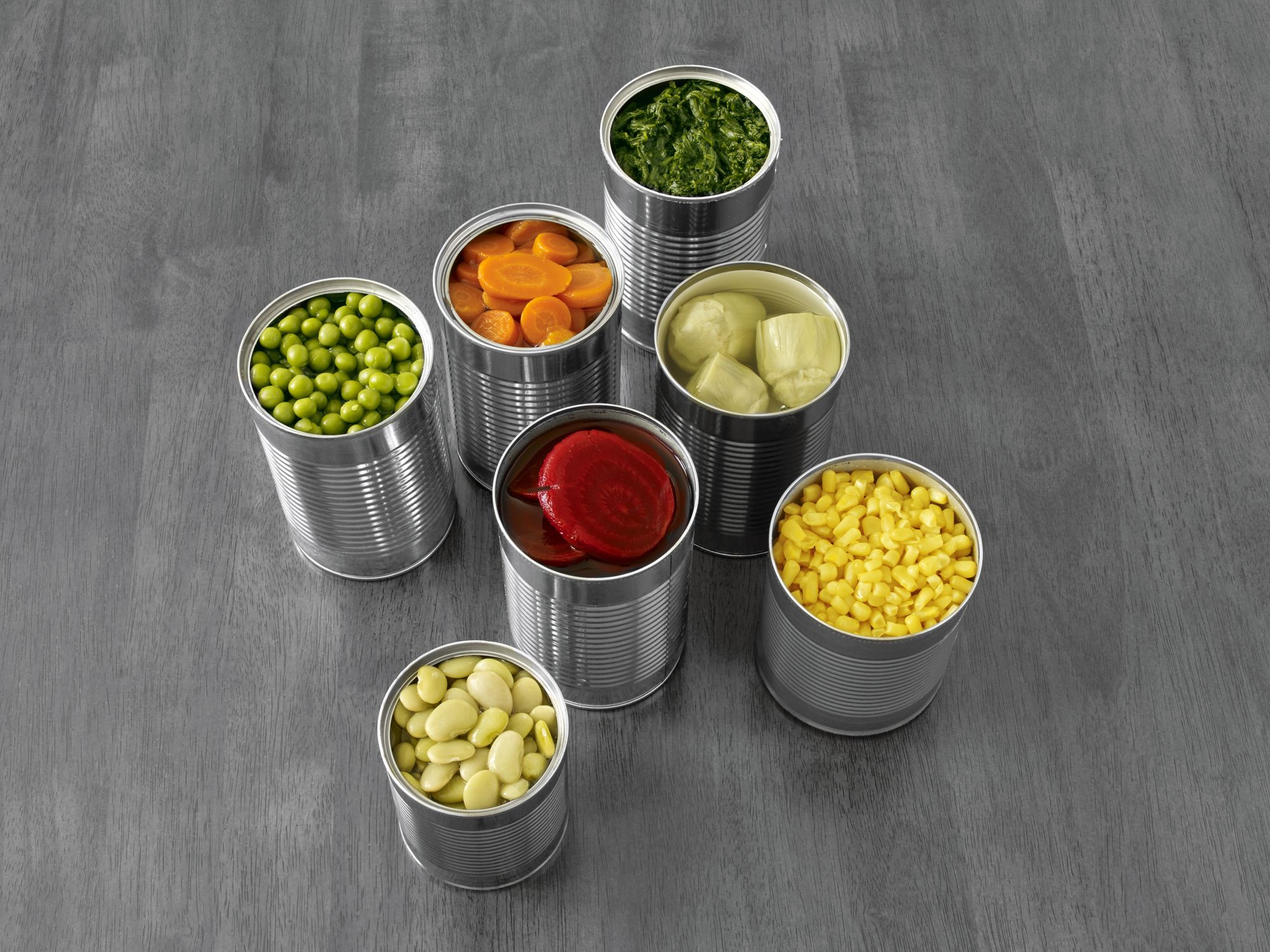 gerenmeGetty Images
gerenmeGetty Images
Canned goods are seriously underrated, but you’ve got plenty of meal-boosting options. “You can have beans for plant-based protein or canned fish for omega-3 fatty acids,” says Cording.
Plus, many canned options—like soup—are also “easy to dress up” with proteins, veggies, and other staples.
Heck, you can make an entire meal out of canned goods. “With kidney beans and canned tomatoes, you can whip up a quick chili,” says Angelone. You just have to get creative.
Some options to consider:
- Tomatoes or tomato sauce
- Fish (tuna, oysters, salmon)
- Soups (like chili)
- Beans
- Veggies (artichokes, hearts of palm)
- Coconut milk
Refrigerated Foods
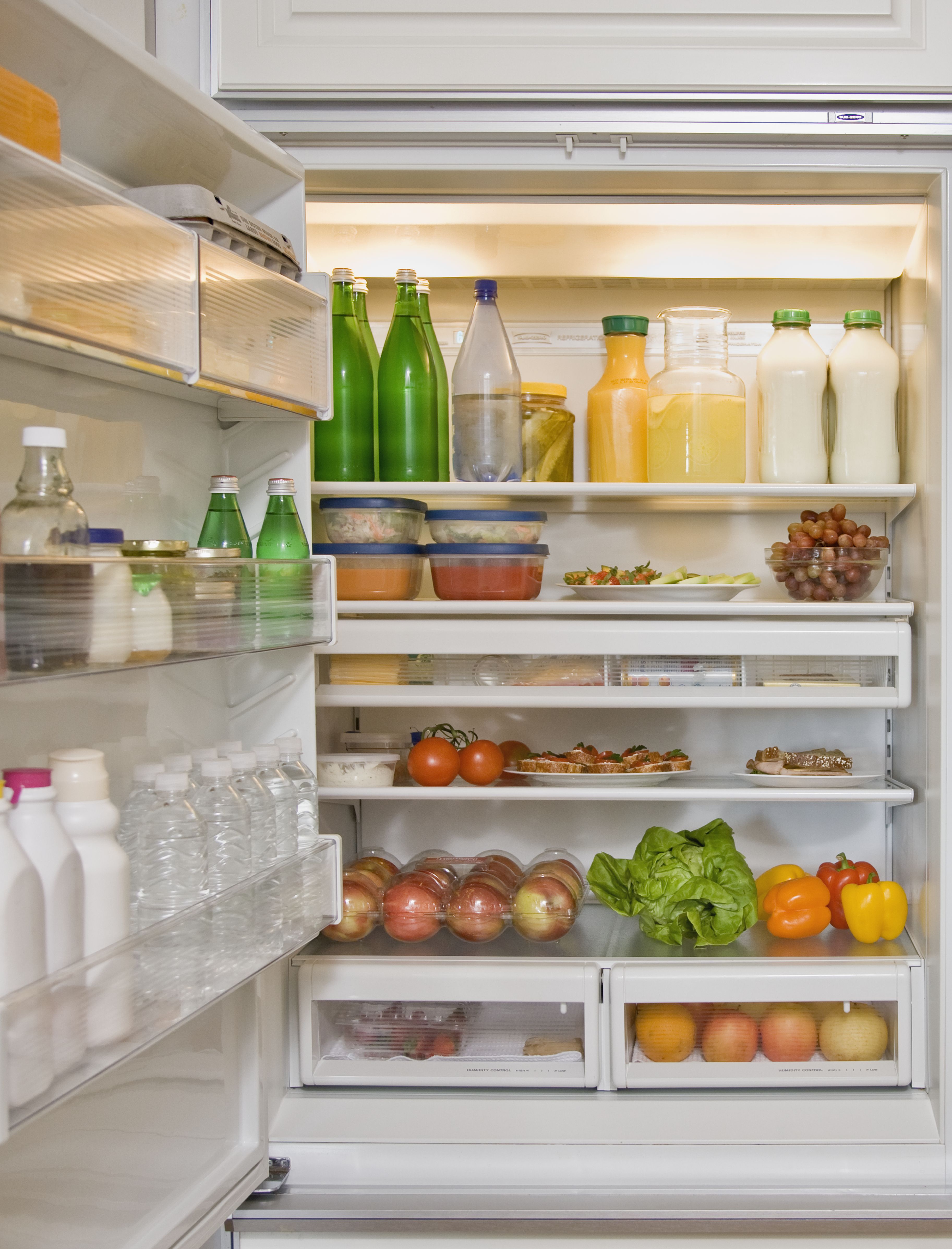 Andersen RossGetty Images
Andersen RossGetty Images
No, the stuff in your fridge won’t last forever, but certain refrigerated foods—like certain dairy products and types of produce—can hang around for a while, says Cording.
Another must-have (for non-vegans, at least): eggs. “They have to be one of the most versatile foods in the fridge,” says nutritionist Scott Keatley, RD, of Keatley Medical Nutrition Therapy.
Never seem to get hard-boiled eggs right? Here’s how to nail them:
“You can bake with eggs, keep them hard-boiled for snacks, or use them as a stand-alone protein. They’re literally incredible.” (Plus, they can last up to five weeks if stored properly.)
So, stock up on:
- Eggs
- Greek yogurt
- Butter or ghee
- Carrots
- Cabbage
- Beets
- Citrus fruits
Frozen Foods
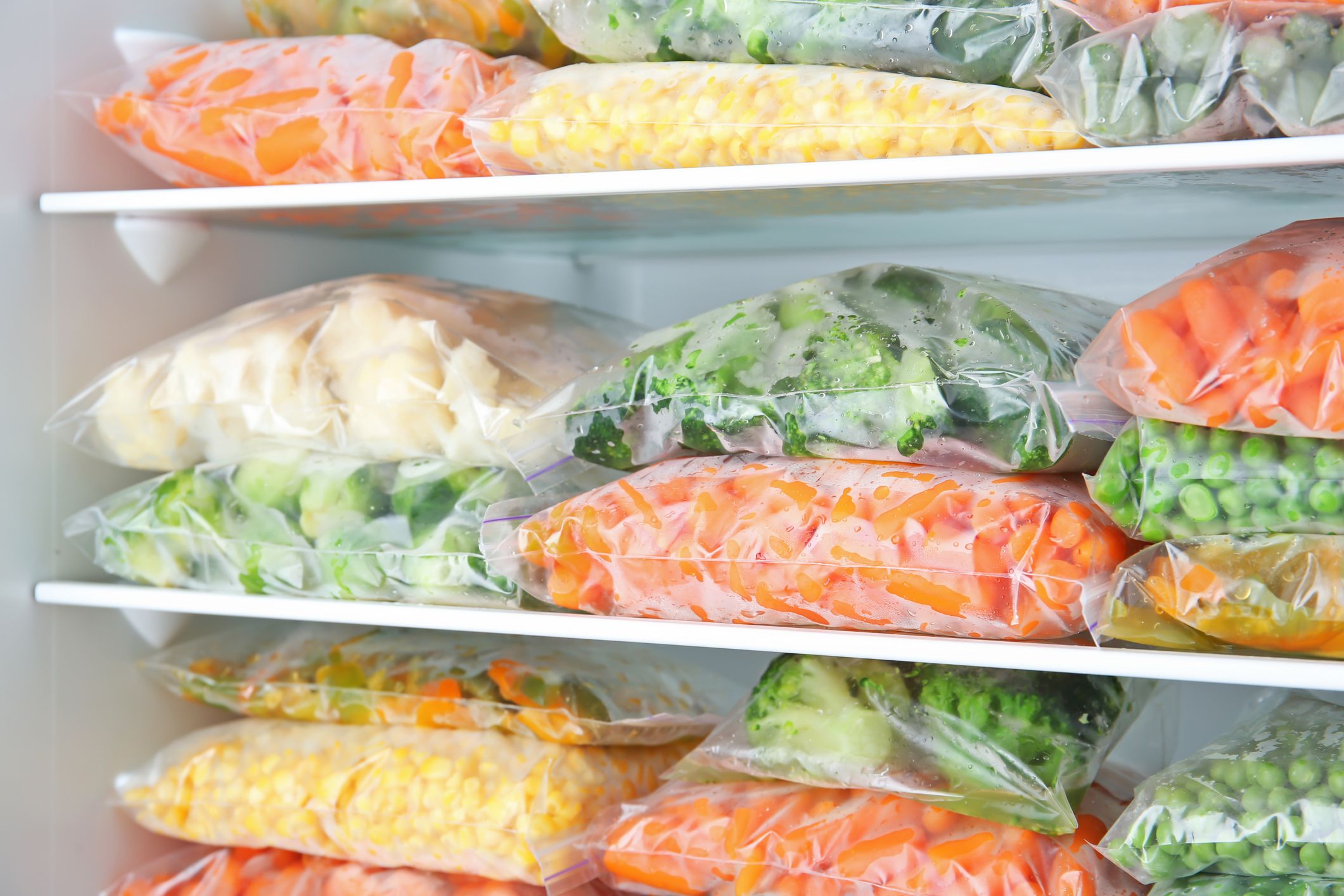 belchonockGetty Images
belchonockGetty Images
No surprise here: A loaded freezer gives you pretty much endless options come mealtime.
“Keeping a well-stocked freezer is the best way to have things on hand that are healthful and tasty,” Keatley says. “Frozen fish, bagged vegetables, and bagged fruit can help health-up any meal or snack.”
Although people tend to give frozen fruits and veggies the side-eye, they actually are a great option, says Cording. “They tend to be frozen right after the harvest,” she explains. “That means that a lot of nutrients are in there when you get around to eating it.”
Don’t miss these options:
- Fruit (berries and bananas freeze especially well)
- Veggies (broccoli, Brussels sprouts, spinach, you name it)
- Edamame
- Fish (and shrimp!)
- Bread
- Meat
Herbs And Spices
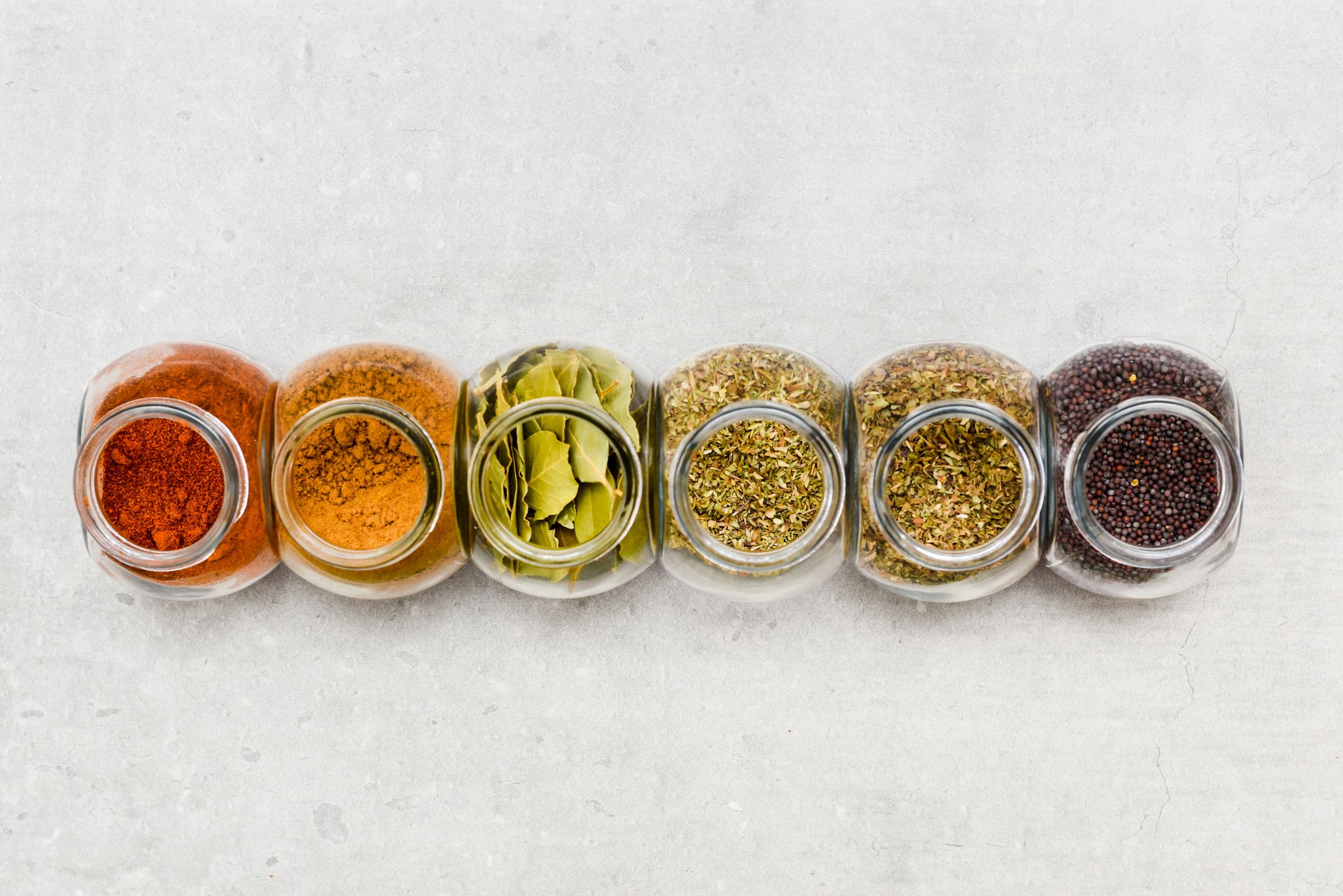 tagphotoGetty Images
tagphotoGetty Images
Though which spices you keep handy really depends on your individual preferences, having a few options ready will level up any meal.
“I recommend keeping a few of herbs and spices to add variety of flavors and cuisines to your meals,” Angelone says.
A few basics worth having around:
- Salt
- Pepper
- Oregano
- Garlic powder
- Onion powder
- Cinnamon
- Chili powder
Oils And Condiments
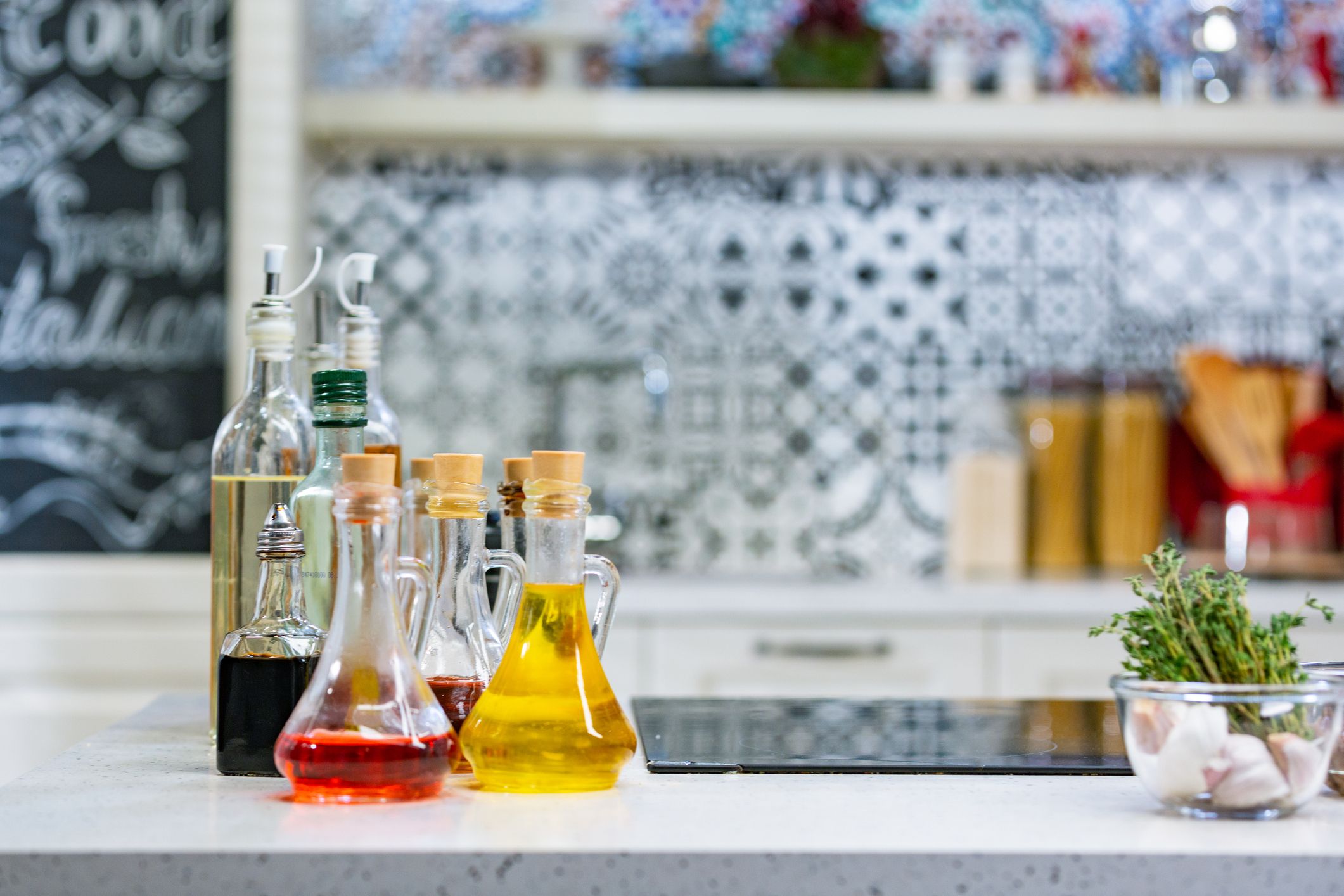 Georgiy DatsenkoGetty Images
Georgiy DatsenkoGetty Images
Again, there’s a lot of personal preference involved here, but no meal is truly complete without condiments—and there are a few staples you really don’t want to go without.
“Olive oil is a must-have in every kitchen, as it is needed for sautéing, grilling, and broiling foods, as well as for making salad dressings and sauces,” says Gans.
Consider these options:
- Olive oil
- Coconut oil
- Vinegars (apple cider vinegar, red wine vinegar)
- Honey
- Salsa
- Marinara sauce
Ultimately, your “essential” foods probably look a little different from the next gal’s, so make sure to take note of the pantry staples you use the most and stock up on your favorites. Otherwise, just focus on keeping a mix of proteins, produce, and whole grains to keep your eats balanced in a bind.
The bottom line: When stocking up on pantry staples, look for dry goods, canned foods, refrigerated staples, frozen foods, and spices and condiments.
Source: Read Full Article